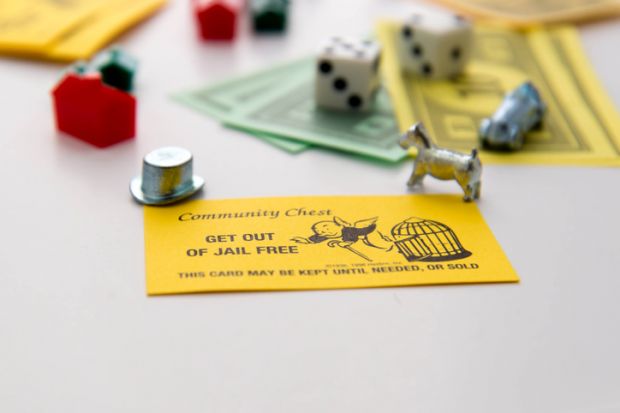University policies that are designed to promote equality instead create a “hierarchy of oppression” and give racists a “get out of jail free card”, according to a leading scholar.
In her new book, Race and Education: Reproducing White Supremacy in Britain, Kalwant Bhopal writes of how she entered academia “naively thinking it would be a safe haven, inclusive and tolerant”.
In fact, universities were “not safe spaces, and they probably never have been”, said the professor of education and social justice at the University of Birmingham. “Given the current economic, political and social climate that we live in, given the fragile times in which we live…racism is allowed to flourish.”
In the book, Professor Bhopal describes higher education as a “white space that perpetuates structural, institutional and individual racism”.
Campus resource collection: Being Black in the academy
Her research reveals that inequality for ethnic minority students begins in school but continues into higher education, where they remain under-represented at the more prestigious universities, are less likely than their white peers to obtain a higher-class degree, and encounter racism on a regular basis.
The book also shows that ethnic minority staff working in higher education also regularly report being subjected to racism by their colleagues and students, are less likely to be professors or occupy senior managerial positions and more likely to earn less and be on a fixed-term or zero-hours contract compared with their white colleagues.
Professor Bhopal said equality, diversity and inclusion (EDI) measures that have been introduced in the sector had failed to tackle “day-to-day racism”. Too often, she said, gender and other factors were given more importance.
Her research has found that gender equality policies, such as the Athena Swan Charter, have often acted as a “smokescreen” at the expense of ethnic minority groups, with white women the main beneficiaries.
“In the hierarchy of oppression…race always takes the back seat. In an EDI agenda that’s already crowded, there’s no time for race,” she said.
“Every university has to take this issue seriously – and the measures cannot be piecemeal; they cannot be tokenistic; they cannot be tick-box,” she added.
“But the real challenge is how you tackle that individual racism. Structural and institutional racism gives white people a get out of jail free card.”

